Moving? Here’s Your No-Stress Change of Address Checklist

ADVENTURES IN MOVING
A month ago, my best friend of almost forty years called me from her car. “Where are you?” I asked, expecting her to be somewhere en route between where she lives in New Jersey and somewhere near New York City. I was surprised to find out that she was in Central New York, headed toward Western New York (where I’m from), to look for a house to buy!
My BFF and her significant other had gone to a financial advisor to talk about the usual financial and tax planning topics as they approach a decade that will see many changes — from the last of the “kids” leaving home to their eventual retirements. Among his suggestions was to buy a home. While that wasn’t feasible in the very expensive area where they currently live, they contemplated moving closer to the areas where both had grown up.
Apparently, the housing market is pretty wacky right now. Home prices are up 30% from where they were just before the pandemic, a mere five years ago! Inventory is low, and demand is high. The morning I spoke to my friend, she’d had a list of six houses to look at the next day; by the time we chatted, three had already sold. Forty-eight hours later, they’d bought a (cute) house!

Photo by David Gonzales on Pexels (And no, that’s not my BFF’s house, but it’s cute.)
One of my other closest friends recently surprised me with a home announcement, too. He and his new spouse live in the south in separate cities; they’ve been working toward finding a city that worked for both of them as one can work remotely and the other was contemplating retirement.
This summer, while visiting a friend in the northeast, they decided to explore communities within driving distance, and unexpectedly found their “forever” home and, like my BFF, closed on a house quickly. Their move is happening as I write this!
As my area of expertise is paper, my initial concerns for both friends involved making sure they were registered to vote in time (per my advice in The Ultimate Guide to Organizing Yourself to Vote) and that they’d get their addresses changed so they’d be sure to get their mail and not miss any important notices or payments.
WHY YOU MIGHT CHANGE YOUR ADDRESS
Is mail that important? I mean, most of us get a lot less paper mail than we used to. Fewer people send cards and letters; people post their vacation photos on social media instead of sending postcards. Many folks take advantage of a one-time $5 credit if they get their utility bills by email (or have them auto-debited with email or text notifications after the fact).
Still, mail is can be vital, and making sure that your mail gets to you will make at least one aspect of the moving process less stressful. There are a few different kinds of address changes:
- Permanent changes of address for all concerned — This happens when you (and possibly your family or household members) change houses (or apartments) and leave (theoretically) for a different home.
- Permanent changes of address of address for only one member of a household, such as when one person moves out after a divorce, ostensibly never to return.
- Temporary, but long-term change of address for one person — Let’s say your kid is headed to college. If she’s staying in town and coming home every week to do her laundry and “borrow” the contents of your fridge, maybe no change of address is necessary. But if she’s headed across the state or country, she’ll want to change her address for most things until May, when she either moves back or tells you she’s going to bum around Europe to find herself.
- Temporary change of address for one person — There are various reasons for this option, but all involve being away from your home (for work or other obligations) for a length of time, with an expectation of returning.
Last November, Paper Mommy fell and broke her pelvis, then contracted pneumonia, and due to some medical neglect that makes me want to punch walls, had three hospitalizations and two stints in rehab over the course of two months.
My mother didn’t need to change her address to the hospital or rehab location — a family friend was able to collect her mail and bring it to her. But my sister, who relocated from her home state to my mom’s house for most of two months (and worked remotely while helping with my mom’s recovery), did redirect her mail, temporarily.
Similarly, I’ve had clients who have home bases but travel extensively and long-term for work. One relocates for six weeks out of every quarter to train different divisions of her company.
Another client is a “locum tenens,” a Latin word that refers to medical professionals (or sometimes clergy) who work temporarily in different locations. For example, travel nurses are temporary healthcare professionals who are hired to address staffing shortages, particularly when patient volume surges or there are higher seasonal demands. Assignments can range from four weeks to much longer, and 13-week assignments are not unusual. Nobody wants to be without their mail that long.
Some locums return to a home base between jobs; others move from one job to the next, living in temporary housing in each location. Getting mail wherever they are feels a bit more like home.
HOW TO CHANGE YOUR ADDRESS
Whatever your reason for changing your address, you’re going to want to organize your approach.
Get the details right
Do not pass go, do not collect $200. Before you submit your change off address for official notifications or share your new digs with friends, make sure you have the details exactly correct, including the full ZIP Code with extension.
I live in an apartment, and my address includes a street address (that applies to thousands of residents of many hundreds of apartments) as well as an apartment number, which is mine alone. Over the years I’ve been here, several new residents have mistakenly listed my apartment number as theirs, and I’ve gotten their mail and packages.
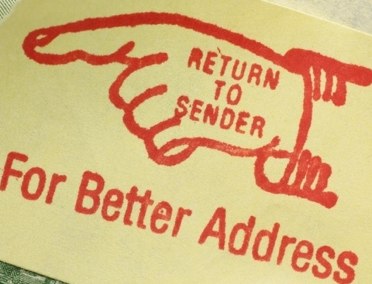
If the mail looks important, I’ve tried to find the person via social media and meet them in the parking lot to give them their mail; if it doesn’t seem vital, I usually write “no such addressee at this location” and return it to to the post office. But not everyone will do that, and you really don’t want to risk your mail or packages ending up with someone who isn’t as cool as Paper Doll.
- Verify your exact address with your real estate agent, landlord, or apartment complex management. You may need to start the change of address process before you get all your paperwork, so be sure to clarify via text or email to ensure it’s correct.
- Don’t make assumptions regarding the address based on what you’ve seen when visitinh. On Friends, Monica Gellar’s apartment’s fictional address 495 Grove Street; the building you see on the show is actually 90 Bedford Street, at the corner of Bedford and Grove in Manhattan. You’re not a TV character, but your home may have an address on one street even if the main (or only) entrance is on the cross street.
- Double-check to make sure that your new home is properly identified as Road, Court, Lane, Boulevard, Circle, etc. Many subdivisions have similar street names with only the final qualifier differentiating among them. (Want to go down a rabbit hole? Read What’s the Difference between an Ave, St, Ln, Dr, Way, Pa, Blvd, Etc.?)
A few months ago, I was on the phone with a friend who built a home in a new subdivision. He’d been delivered a package for a home with the same number as his on the next street over. He thought he’d do a good deed and walk the package over to them while we chatted. Unfortunately, the next street over was not numbered the same way, so the true recipient’s home wasn’t approximately behind his, but much farther away. Eventually, he cut through some backyards back to his house, got his car, and re-attempted the delivery. Again, not everyone is that helpful!
- Double-check the directional terms, like 129 West 81st Street (that’s Jerry Seinfeld’s place, in Apartment 5A). Make sure you ask for sound-alike numbers (five/nine, fifth/sixth) to be spelled out (in case you get Mr. Rogers’ old 4802 Fifth Avenue house).
- If you’re buying a recently-constructed home, triple-check. Sometimes, a developer may change the street names between when the plans were submitted to the post office and the municipality put up the street signs.
- Check to see if your street is actually registered with the post office. It’s hard to believe, but some developers sometimes forget this step.
![]()
This is fairly easy. Look up your address on the United States Postal Service ZIP Code Lookup site. Enter what you have of the address, and it should return the proper ZIP Code, including the four-digit extension.
You can enter the address to get other details, the city and state to figure out the ZIP code, or the ZIP code to determine the right name for your location. For example, my childhood home is considered in Buffalo, New York, but known by other names:
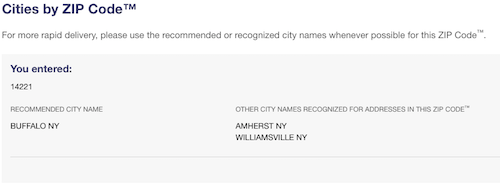
WHO NEEDS TO KNOW TO KNOW YOUR NEW ADDRESS?
Once you know to where you’re relocating, start spreading the news.
Start with the Post Office
Submit a change of address through the United States Postal Service. You can walk in to any post office and fill out a change of address form, or file a change of address online. (The USPS page also helps you change your address for the purposes of changing your voter registration address.)
Click to identify whether this is a change of address for an individual, family, or business. Provide your full name and email address (to which your confirmation will go); USPS also requires a mobile phone number in order to verify your identity and mitigate fraud.
Select whether you will be returning to your address within six months (to classify whether your change of address is considered temporary or permanent).
Choose the date when you wish mail forwarding to begin. (The minimum duration for a temporary change of address is 15 days. The initial forwarding period is restricted to 6 months, but can be extended up to 1 year.)
After you provide your old and new addresses, you’ll be charged the whopping fee of $1.10, by credit or debit card, for security purposes.
Standard mail forwarding lasts for a year. After that, you can pay for extended mail forwarding at the rate of $22.50 for six more months, $33.50 for an additional year, or $44.50 for eighteen months. At that point, you should have cycled through just about every annual bill and notification and should be able to notify everyone who might have slipped through the cracks in the year after your move.
Filing your change of address with the postal service will cover most of your incoming mail, but is only temporary.
The following should help get you on your way to recalling everyone else you need to notify.
Notify Government Agencies
Only you know which government agencies you deal with at the federal, state, and local levels, but start with these:
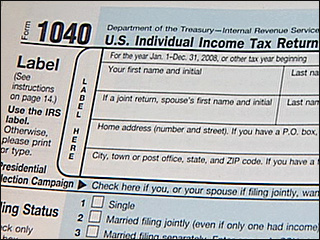
- The Internal Revenue Service — It should be obvious, but the IRS really needs to know where you live. It’s also to your advantage for them to be able to find you; you don’t want to miss out on refunds, rebate or stimulus checks, or important notices.
Fill out IRS Form 8822; learn more at the IRS Address Change page. Alternatively, you can submit your change of address on your next tax return, by phone, or by mailing a written statement that includes your full name, Social Security Number, and old and new addresses to the address to which you mailed your last return. (Yes, you probably filed online with Turbotax, but that’s what their instructions say. Use this IRS page to find a good mailing address.)
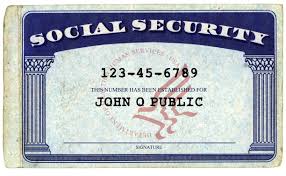
- Social Security Administration — If anyone in your household gets (or soon will receive) disability, retirement or survivor benefits and you live in any of the 50 states, DC, Puerto Rico, the U.S. Virgin Islands, Guam, the Northern Mariana Islands, or American Samoa, log into your account and use Social Security’s online system to change your address; you can also call 800-772-1213, Monday through Friday, 7 a.m. to 7 p.m. EST, but expect to provide information to prove your identity.
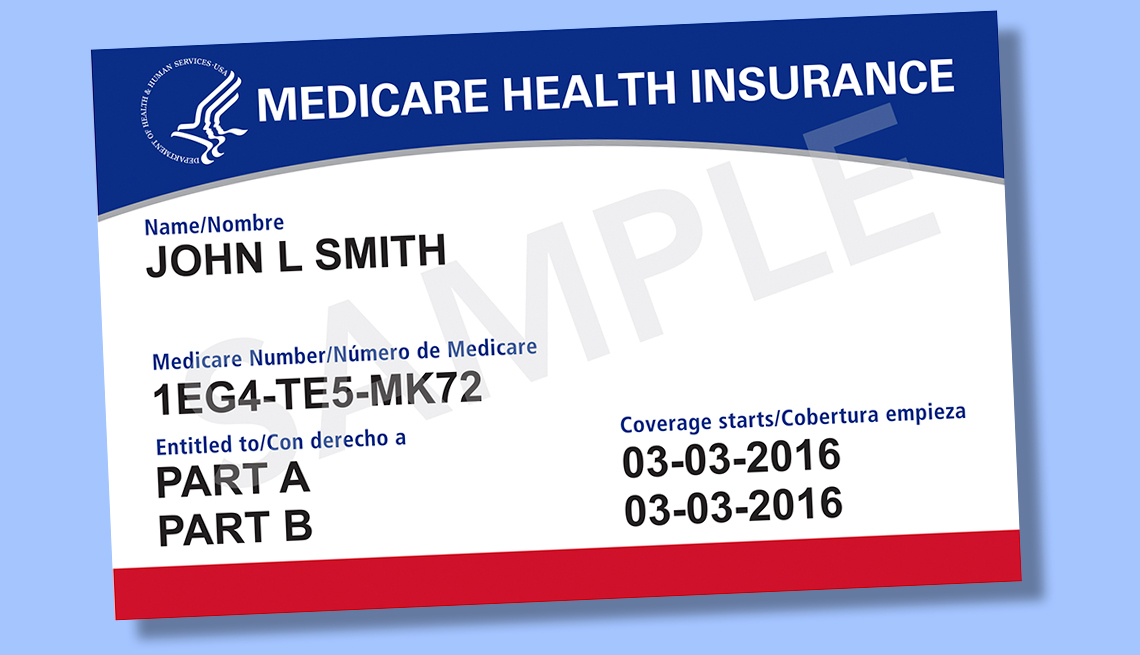
- Medicare — To change your address with Medicare, you must contact the Social Security Administration, as described above.
- Healthcare.gov — If you get your healthcare through the federal exchange rather than a state exchange or private insurance, log into your account and update your current application online. If you are moving within the same state, you can update your application online, by phone, or in person — but not by mail. However, if you move to a different state, changing your address is not enough; you will need to submit a new application and select new health insurance.
- Department of Veterans Affairs — If you or a member of your household has been in the military and receives military benefits (or will in the future), be sure to keep the address updated, either online in your VA.gov profile or use the Department of Veterans Affairs’ change of address printable form. Note that changing it in your online profile will speed the information across all divisions.
This is also important if you are the executor of a will or responsible for the estate of someone with military experience service. Make sure the VA can find you.
- U.S. Citizenship and Immigration Services — Most resident non-U.S. citizens need to report their changes of address within ten days of moving within the United States or U.S. territories; this should be done through your USCIS online account. If there’s a reason you can’t update your USCIS address online, you can download and fill out Form AR-11 to submit an Alien Change of Address Form.
Note that changing your address with the USPS will not change your address with USCIS and USPS will not forward your mail from USCIS, so you’ll want to jump on this.
- Voter Registration Offices — If you move, whether it’s across the street or to the other side of town, you need to update your address with your local board of elections. A change of address even within the same congressional district may still change your voting options for city or town council, school board, and other local issues.
If you move to a different county, city, or state, you’ll need to register to vote in that locale. As you learned in my post on voting, different states have different rules regarding the methods (in-person, by mail, online) for registering to vote and changing your address. You can also register to vote or change your registration information, including your address, via Vote.org.

- Department of Motor Vehicles — Contact your state’s DMV to find their online change of address page (if you’re moving within the same state) or registration information (if you are changing states).
- Toll Pass Agencies — Don’t forget to update your address with whatever toll pass accounts you use. Look at your transponder if you’re not sure what agency handles your toll pass. EZ-Pass, for example, covers twelve states, and services I-PASS in Illinois, and other regional agencies in North Carolina, Indiana, Kentucky, and Florida.
- Unemployment Offices — Depending on your state, relocating while you receive unemployment benefits can be tricky. (If you move to a different state, your benefits will likely end.) Notify your state’s unemployment agency as soon as you being the moving process. In most states, the easiest way to update your address will be to log in to your state’s unemployment benefits online account. If you aren’t sure where to start, the Department of Labor has contact information for all state unemployment insurance offices.
Finally, if you are certified or licensed by your state to fly a plane or maneuver a boat, to fish or hunt, or to perform your profession, be sure to contact that government agency to update your address.
Contact Financial Institutions
Even if you conduct all of your financial transactions online, your providers need to know where you live because some financial rules and regulations are governed by the state in which in the accountholder resides. So, create a checklist for any and all of the following:
- Banks and credit unions where you hold accounts
- Brokerage houses and investment services, for retirement and non-retirement investments
- Credit reporting agencies — Officially, you only need to notify your creditors. However, it’s worth your effort to check Equifax, Experian, and TransUnion after the move to make sure your address has been properly updated. Log in to all three via AnnualCreditReport.com.

Little House Photo by Kostiantyn Li on Unsplash
- Insurance companies — Whether you have auto, homeowners, renters, health, or dental insurance, long-term care or life insurance, umbrella policies, or coverage for your business — if you’ve got insurance, notify them of your address change. In most cases, changing your address will change some aspect of your coverage, especially the cost.
- Lenders — Got credit cards? Auto or personal loans? (Obviously, if you’ve got a mortgage or a HELOC, those will be going away when you move, but the bank will still need to be able to contact you for a while.)
- Online financial accounts — Whether it’s Paypal, CashApp, Venmo, or Zelle, make sure your address is updated in the accounts. Where you reside impacts legal terms and conditions.
Tell the Boss Man (or Boss Lady)
You may not get a physical paycheck anymore, but your employer needs to know where to send tax forms and other official documents.
If you work remotely and change your state of residence, tell your HR department!
Notify Your Utility Companies
When you move, you (generally) don’t take your services with you, but you may keep the same account number. Notify the following when you change your address:
- Electric company
- Gas company
- Sewer service provider
- Trash/Waste/Recycling service providers
- Water company
- Internet service provider
- Telephone companies — You may not have a landline anymore, but you almost certainly have a phone. Be aware that the taxes you pay on cellular phone service are determined by the county in which your account is registered. If you use online billing, it may be to your advantage to keep your cell service registered to your old zip code, but your provider’s Terms and Conditions may not allow this.
- Television service provider — Sure, if you have cable or satellite service, that will change depending on where you move. However, the tax you’re charged for streaming services will change depending on the state to which you move.
- Other entertainment providers — Whether you subscribe to music or gaming services like Spotify or Twitch, or have tangible subscriptions for magazines and newspapers, update your address.
WHO ELSE NEEDS TO KNOW YOU’VE MOVED?
Notifying the above folks will keep you from getting into trouble or debt, but don’t forget all of the other individuals and companies that need to be able to find you.

Household Services
Depending on where you move, your household service providers, whether a big company like Terminex or the nice lady who dusts your piano, will need to know how to contact you, whether to continue providing services or finalize paperwork. Start with these and brainstorm whom else you might need to contact:
- Alarm company
- Housekeepers
- Lawn and garden care
- Pest control
- Pool maintenance
- Snow plowing/shoveling
Healthcare Providers
- Internists/Family practitioners
- Pediatricians
- Specialists (OB/GYNs, ophthalmologists, endocrinologists, etc.)
- Dentists
- Orthodontists
- Veterinarians — If you have a pet with a microchip, update the chip’s registration to reflect your new address so Fido or Fluffy can be safely returned to you!
- Pharmacies, especially online pharmacies
Other Professionals
- Attorney
- Accountant
- Bookkeeper
- Financial advisor
- Personal coaches
- Professional organizer
Schools/Caregivers
- Daycare providers — for childcare, eldercare, or pet care
- School administrative offices — Every school needs your change of address: preschool, elementary, middle, and high schools as well as college, whether you are a student, parent or alumni.
- Tutors — Don’t be so busy with your move that your forget to tell your son’s algebra tutor or your daughter’s piccolo instructor that you moved. It’s no fun to stand at someone’s front door, ringing the bell and having nobody answer.
- Activity administrators — If your kids are in gymnastics or Tae Kwon Do, or you participate in any community organizations, make sure to update your address with them. Yes, the USPS mail forwarding will prompt you to remember this, but the sooner you update this information directly, the less chance there will be to miss something important.
Online Connections
Do you get meals from companies like Blue Apron or Hello Fresh? Make sure your food follows you to your new home.
Do you use food/shopping delivery services like Door Dash or Uber Eats? I’ve seen more than one tweet or TikTok video with someone ordering delivery for the first time in a long time and only realizing after they ordered that the delivery was going to the city where they used to live. (It’s universally agreed that when that happens, you tell the driver to keep the meal and enjoy it!)
Be sure to update your address at Amazon and other retailers where you shop online. Got an Amazon (or other) wish list? Change that address too, or your friends will be upset when they send you birthday presents that you don’t get!
Do you travel? Update your addresses for your hotel, airline and other frequent-user accounts
Tell Your Peeps
You’re not going to forget to give your mom your new address, but remember to update your friends and members of your personal circle, including:
- Extended family and friends — The upside is that you may get sent a housewarming present!
- Civic organizations and clubs to which you belong
- Houses of worship and religious organizations
Business Contacts
I could write an entire post about whom your business should contact regarding a changed address. But for personal mail regarding your professional life, consider:
- Professional associations
- Licensing and certification boards
- Formal networking groups
- Affiliate programs from which you are expecting commissions
All of the above assumes that you’ve moved house in the United States. If you move to another nation, be sure to register your address with the U.S. embassy or consulate in your new country. This will ensure that you receive essential updates about safety, security, and emergencies in your area.




I’ve only moved a few times in my life. However, I’ve helped a number of clients move, which has included helping them with notifying others of their change of address.
Your list is so comprehensive and well researched. No surprise, Julie, because you excel at this. I’m going to bookmark this one if we (or a client) ever moves. Aside from letting vendors and family know, you identifying other important entities like the goverment, voting registrars, and social security. Great list and excellent reminders!
I hate moving, so much so that I haven’t done it in 26 years. But at one point in my life, I’d lived in five places in six years. Never again! Back then, there weren’t as many places to notify (and I was young, so I had so few “accounts” of any type), but changing your address everywhere can feel daunting. And really, changing it at the post office really just delays the obligation for a year while your mail gets forwarded.
Thank you for your kind words!
So sorry to hear about your mom. It’s great that your sister could move temporarily to help her.
I found out this summer that if you need to get your mail held at the post office, you can only do one set of dates at a time. So, if you have two or more hold dates, you must adjust it when the first set of hold dates is over. Ugh.
Also, some addresses, especially if it is a new development, may have issues with changing addresses; it is best to go to the post office and take your settlement paperwork with you to set up a change of address instead of doing it online in case the new development street address is not known.
Wonderfully thorough information, as always. Thank you.
Yeah, the end of last year and start of this year was a dark adventure. Paper Mommy saw the worst of it, but then near the end of my sister’s time up there, she got a detached retina, for which she’s had three surgeries this year (two of which were down here, so I’ve been able to be there for her), but sheesh, it’s been bad mojo. We’re ready to turn that page!
You’re right about the dates — if you know you’ll be traveling in February, June, and November for a month each, you can only request one forwarding set at a type. Considering it’s all digital, I can’t imagine why.
Your point about the new development matches up and expands upon what I noted in the post about having a new build. We’re dovetailing!
Thanks for reading and for your kind words!
Reading all of this makes me want to stay at my current address until the end! Like Sabrina, so sorry for all your Mom has been through… sounds painful.
I have a friend who had to negotiate a complicated situation. They had a residence in Atlanta and one in the mountains of NC. They would close up and leave one residence for a long time. This is surprisingly difficult from a “mail” perspective. Even when you have the “mail forwarding” in place, it doesn’t always work, and they never forward 3rd class mail (I think…).
Having someone collect your mail is the best approach if your relocation is temporary, but that can be a big “ask.”
My daughter lived with us for awhile. She has since moved out, but we still get a lot of mail for her and her husband. Similarly, she gets not only mail but packages for a previous homeowner (not the prior, but even before that). It’s so weird. They tried going to UPS to have the unopened package returned but they wouldn’t do it. So strange!
Great and thorough advice as always!
I know what you mean, and the change of address is still the easiest part of the process. I bet I’ll only ever move one more time in my life. It’s just so daunting!
Having someone collect your mail is not only a big ask, as you note, but it requires some loss of privacy.
And I’m shocked that the post office would not take the mis-delivered package. I know by law that you’re allowed to keep anything sent to you, no matter the cost, even if you didn’t pay for it or request it, but it’s so unfair to the person who ordered it. Phooey!
Thank you for reading and being so kind, both about the post and about my mom! Hugs!
Having lived in one home for over 55 years, I agree with Seana, moving would require the services of 10 Julie Bestrys! However, this is an amazingly complete discussion of the process and I know where to find it should I need it in the near future. I can’t believe you even thought of E-Z Pass. Well done as always.
Heh. Moving can be a challenge, but I think the best way to feel “at home” in a new space is to normalize as much as possible as soon as possible. Not having to worry about tax notices, bills, or birthday cards going missing is one way of having more control.
Thanks for the positive feedback!
Thanks Julie. You are the most in-depth researcher I know. It’s so nice to have you in my hive to rely on. Although I must admit, this makes moving sound like it will be too much trouble. So many things I hadn’t thought of. Thanks for being so thorough!
Aww, thank you, Michele. I love to research and make sure my readers have all of their bases covered, so I really appreciate that resonating with you. (Buzz buzz from the hive!)
Moving is, indeed, frustrating. The more “stuff” we have, whether it’s tangible items, full schedules, or hearts and minds full of connections (good and not-so-good) to our current spaces, the harder moving can be. Being organized makes it easier to be meticulous, but it doesn’t make dealing with moving companies, finding a new place to live (or a new school for kids), or kindling new connections easier. It just removes some of the more stubborn obstacles, so we have the time and headspace to deal.
Thanks for reading and for the feedback!
This is great advice. I can’t think of anyone you didn’t list. I’ll be moving soon and will keep this info.
When you do move, I hope it goes really smoothly!
Thank you for reading!
Wow! So much amazing information here! Thank you for taking the time to share all this!
I really appreciate the feedback, Florena. It’s my goal to provide as much info as possible so people don’t have to spelunk their way through the internet to learn what they need to know.
Thanks for reading!
Bravo Julie… and insanely compressive guide to address changes!
John
Aww, John, you made me blush! Thanks for the feedback and for reading!